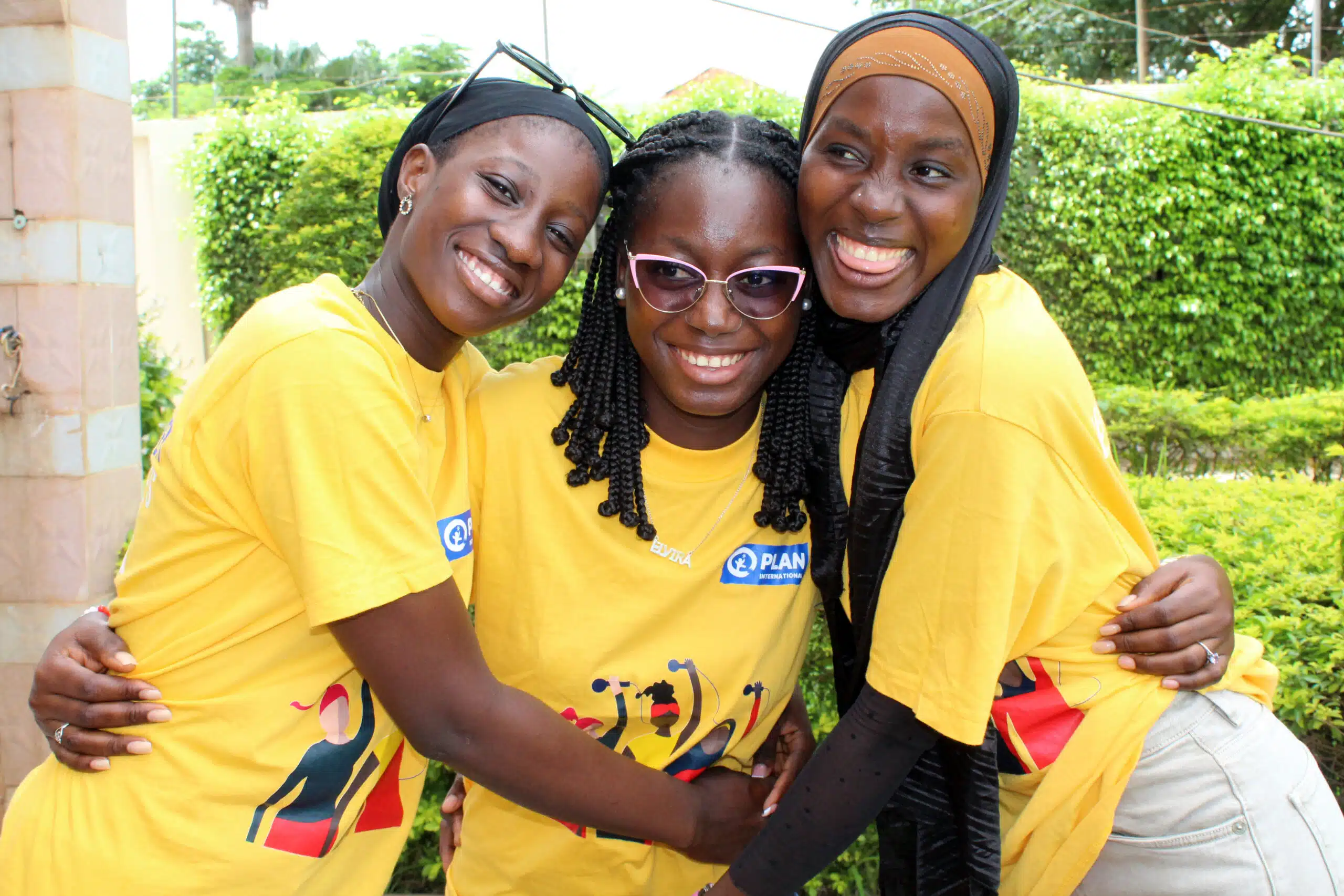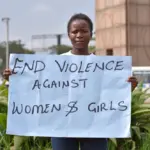Media Centre - Media release - 11 October 2022
Girls progress, interrupted: politics, pandemic and the patriarchy continuing to hold girls back over the past 10 years – says new report

Is a girl born in Australia today better off than one born a decade ago? It turns out the answer, even in a wealthy, democratic country with bipartisan support for gender equality, is not a simple yes, according to new analysis by charity for girls’ equality Plan International Australia.
The research, published today on the 10th annual International Day of the Girl, a day celebrating the importance of girls’ rights, found that a combination of factors – including the COVID-19 pandemic, the climate crisis, conflict raging in many regions, harmful gender stereotypes and misogyny, the rise of far right-wing politics and many other intersecting issues such as systemic racism, ableism and transphobia – has profoundly set back progress on girls’ rights around the world.
International Day of the Girl has for ten years shone a spotlight on issues affecting girls and their rights.
The research found that in the last decade, the visibility of girls’ rights has significantly risen and importantly, that much of the change and campaigning for girls’ rights is being driven by girls themselves.
The global review found that improvements have been recorded on key gender equality indicators, such as education, child mortality (which has dropped to 34 deaths per 1,000 live births for girls) and legal protections from certain forms of abuse and harmful cultural practices, such as the banning of child marriage in the Dominican Republic in November 2020 and FGM/C in South Sudan in April 2020.
However a growing youth population means that more girls are being denied rights today – rights that are guaranteed under international law – than in 2012. Together, this means that of the 144 countries in the UN’s Sustainable Development Goals (SDG) Gender Index, which account for 98% of the world’s girls and women, not one country has achieved gender equality.
As of 2020, more than three billion girls and women still live in countries with ‘poor’ or ‘very poor’ scores for gender equality.
A 10-year snapshot of girls’ rights in Australia
In Australia, progress for girls has been similarly frustrating. There are over 3.7 million girls and young women in Australia aged 24 years and under. Despite their numbers and their powerful intersecting identities, girls, young women and gender diverse young people encounter deep and systemic inequities in Australian society that impact them every day and in every space.
The report’s key findings on equality for girls in Australia included:
- The number of adolescent pregnancies (ages 15-19) has halved in the last decade in Australia.
- The number of women in the House of Representatives has increased from 25% in 2012 to 38% in 2022. Based on current progress, it will take another decade for equal representation in the House.
- Rates of sexual assault have increased over the decade by 22%. In 2019, the rates of sexual assault for girls and young women aged 15-19 were nine times higher than for males of that age. This is also known to be significantly underreported.
- Adolescent girls and young women have had the highest rates of hospitalisation from intentional self-harm across all age groups since 2012.
- There have been important family violence and sexual assault reforms, some of which included comprehensive consent and respectful relationships education for young people. A national, consistent and comprehensive curriculum approach doesn’t exist.
- According to the World Economic Forum Global Gender Gap Index, Australia fell from 25th in the world in 2012 to 43rd in 2022. This is compared to New Zealand, who in 2022, ranked 4th in the world.
- The last ten years has seen important progress being made in access to education and educational outcomes for First Nations girls and young women. In 2014–15, almost half (47%) of First Nations women aged 15 years and over, achieved a certificate, diploma or degree (almost double the numbers from 2008). In 2018–2019, 66% of First Nations young people had attained Year 12 or equivalent. However, far more needs to be done to ensure First Nations young people have equal access to education.
- The rates of gender-based violence are disproportionately higher amongst First Nations girls and young women than the non-Indigenous population. Alarmingly, three in every five First Nations women have experienced physical or sexual violence, according to the 2021 Australian Human Rights Commission (AHRC) Wiya Yani U Thangani (Women’s Voices ) framework. Girls aged 10-14 are the greatest number of victims of sexual violence, followed by young women aged 15-24, found a Queensland Centre for Domestic and Family Violence Research paper from 2019.
- In July 2022, the NSW Government announced a $30 million investment into 10 pilot projects to co-design parts of the city with girls and women and address street harassment.
- The 2018 Australian Trans and Gender Diverse Sexual Health survey found 53% of participants reported experiencing sexual violence or coercion, well above the national average.
- Women with disabilities were 40% more likely to be victims of family violence than women without disabilities and more than 70% of women with disabilities have had violent sexual encounters in their lifetime.
- Period products are now free in all Australian high schools, and after a grassroots campaign in 2018 by young feminist Subeta Vimalarajah, the Australian Government removed GST from pads and tampons.
“From the inspiring and defiant young women and girls protesting in Iran right now, those leading climate justice movements in schools and on the streets, to the brave and determined young women fighting to be heard in politics – and demanding that politics to be safe and equal – when girls are freed from societal restrictions around gender everyone benefits,” said Plan International Australia CEO Susanne Legena.
“We celebrate all girls today but know that change has not been equitable; it has been slow, it has been contested at every turn and continues to be, and many girls, especially those who face intersecting risks, are looking to remain that way for the rest of my life and theirs. How can we stand by and watch this happen?” she added.
“All parents want is a better world for their kids, so as a mother it is deeply troubling to see that all girls, in all of their diversities – including my daughter, who is almost 10 years old – still remain on an unequal footing in Australia,” said Ms Legena.
“The rights of First Nations girls, children with a disability, LGBQTIQ+, children and young people, children in humanitarian and conflict situations, displaced girls, and girls in poverty remain under threat. Where gains are made, they are ripped away by humanitarian crises and other shocks, with COVID-19 being a prime example. We are nowhere near on track for gender equality by 2030, but we must ensure that all girls have a better future in their lifetime.”
“The 10-year-old girl is the single most powerful investment we can make, according to the UN. If we can unlock her potential , we can unlock a better world for everyone. In the next decade, I want every girl 10-year-old girl to feel confident that she is equal, she is safe and she can live up to her full potential and realise all her dreams without any restrictions.”
“I’ve grown up with International Day of the Girl – and every year I learn more about the global magnitude of discrimination and denial of rights and freedoms of girls,” added Plan International Australia ambassador Yasmin Poole.
“I speak out for girls’ rights because I can’t look away. When I was young, I vividly remember witnessing racism and sexism against my mother. At the time, I carried these experiences with feelings of shame and hopelessness. I feel agency by sharing my own story and helping to amplify the realities of girls and young women that are so often left on the sidelines. I am equal parts fascinated and determined to change the systemic drivers that harm us while privileging others.”
[ENDS]
NOTES TO EDITORS
- Girl, Interrupted: The progress, the pushbacks and the fight for gender equality is released on the 10th anniversary of International Day of the Girl on October 11, 2022, and will be available at https://www.plan.org.au/publications/girl-interrupted-10-years-of-girls-rights-in-australia/
- Realising every girl’s right to flourish: a review of progress on the 10th anniversary of the International Day of the Girl, is released on the 10th annual International Day of the Girl on October 11, 2022. It will be available at https://plan-international.org/publications/realising-every-girls-right-to-flourish
Media contacts


